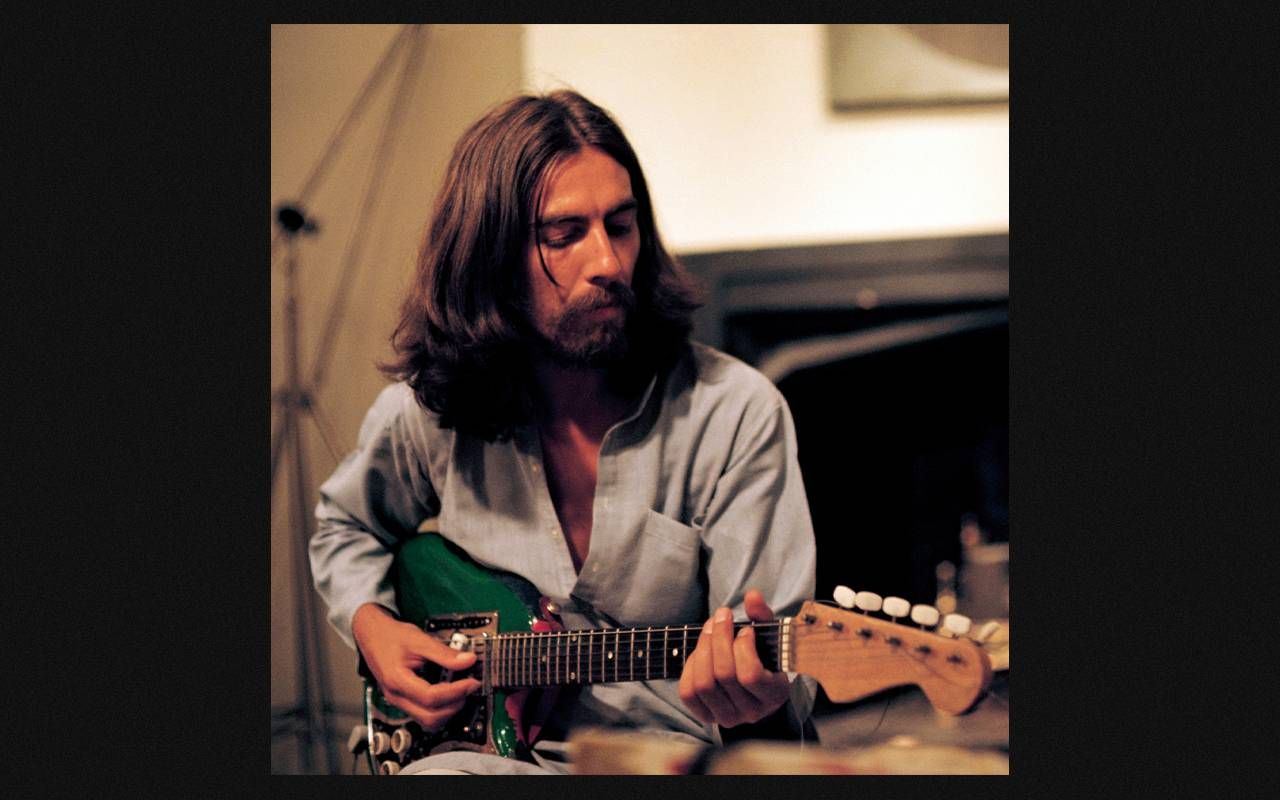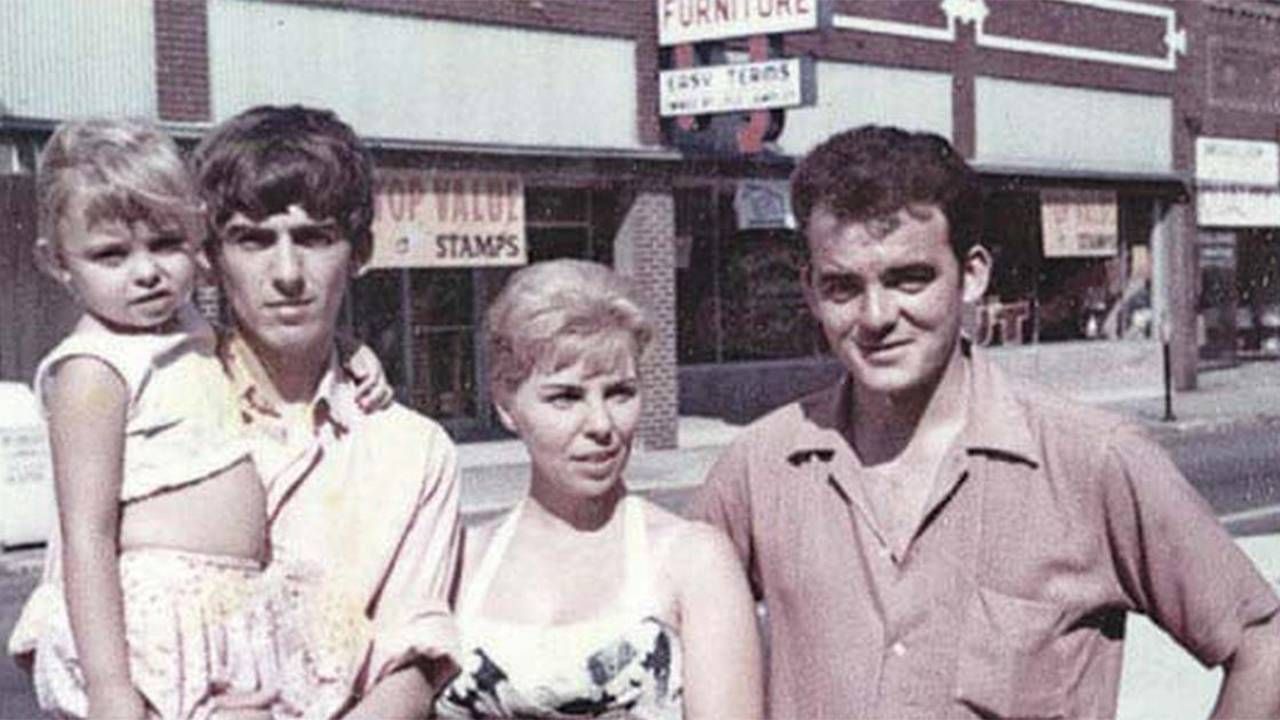George Harrison: What the 'Quiet Beatle' Taught Us
With a ‘live in the now’ mentality, Harrison, who would have turned 80 this year, modeled valuable life lessons
I want to tell you/My head is filled with things to say — George Harrison
When you think of Beatle George Harrison, what comes to mind?

Of course, his iconic songs and indelible guitar solos stand out. Think of his beautiful work on "And I Love Her" and the opening, crashing riff on "A Hard Day's Night." Or his timeless classics: "While My Guitar Gently Weeps," "Taxman," "Within You Without You," "Something'" "Here Comes the Sun," "My Sweet Lord," "Awaiting on You All," "Give Me Love," "All Those Years Ago," "Blow Away," and "Handle with Care."
And Harrison was a noted rock and roll innovator. He popularized the use of the sitar in Beatles songs and invoked Indian philosophies in his lyrics.
Remember, George was the father of the rock benefit concert, with his stewardship of The Concert for Bangladesh in 1971.
Beyond music, I think of George Harrison's dignity, integrity, generosity of spirit, loyalty, stoicism, wit, spirituality and wisdom.
Harrison, who died of lung cancer in November 2001, would have turned 80 years old on February 25, 2023. He taught us so much about living by a code of values and honor. He let his music and deeds do the talking. Remember, George was the father of the rock benefit concert, with his stewardship of The Concert for Bangladesh in 1971 which raised funds for war refugees from East Pakistan.
I've selected a handful of life lessons that George conveyed during his all-too-brief 58 years.
Dignity
Harrison was the most dignified of musical heroes in an industry that often celebrates bad taste, hype and excess. He kept his feet planted firmly on the ground and remained aware of the fickle ways of fame.
"I go out all the time," he assured WNEW-FM, a New York radio station, in a 1987 interview. "I just don't hang out where the gossip columnists go."
George understood the wisdom of not believing in your hype. He demanded that the Beatles stop touring because Beatlemania had become more of a burden than a joy. He didn't buy into the trappings of what singer Joni Mitchell called "the star-making machinery."
"They (the media) love you and build you up to a point where the only thing they can do is knock you down," Harrison told WNEW.
Loyalty
In the early 1970s, Harrison's friends in the comedy troupe Monty Python had a terrible problem: A film studio had put the kibosh on their film, "The Life of Brian," at the 11th hour because they thought the script was too controversial. The Pythons were freaking out.
Harrison didn't flinch. He mortgaged his home in England to raise millions of pounds for the film project. George's kindness was rewarded when the movie went on to post a handsome profit and the success helped establish Monty Python as a worldwide comedy force.
Contentment
Whether you're a musician or a lawyer or a surgeon or a financial consultant, it is easy to become hooked on your adrenaline and obsessed by your pursuit of success.
But inevitably, that kind of thinking is bound to be debilitating and suffocating. You must have a fulfilling life away from work.
Harrison eventually preferred to think of himself, first, as a gardener, not a rock star. His son Dhani lovingly called him Farmer Brown. George dedicated his 1980 memoir,"I Me Mine," to "gardeners everywhere."
Live in the Now
Humility and modesty were only two of the lessons that George Harrison taught us. He also refused to be trapped by past glories and he insisted on living in the moment.

His fans and journalists were obsessed with his accomplishments as a member of the Beatles in the 1960s – and speculated endlessly throughout the 1970s about whether the world's most famous band would ever get back together. Harrison couldn't be bothered. He crystallized his philosophy by naming his first solo album, "All Things Must Pass."
"Sometimes it's like it was a previous life, the Beatles," he said on Mary Turner's "Off the Record" radio show in 1987.
Integrity: Put Your Money Where Your Mouth Is
In his signature act of selflessness, Harrison stepped up when his dear friend Ravi Shankar approached him in the spring of 1971 with a big request. Would George help put together a benefit concert to help the devastated people of Bangladesh?
Harrison eventually preferred to think of himself, first, as a gardener, not a rock star.
Not only had rock and roll never undertaken such a major benefit concert, but the concert was to take place at Madison Square Garden in the media capital of New York City.
George didn't hesitate even though, remember, "The Quiet Beatle," as the press dubbed him, had never uttered more than a sentence or two every night that the Beatles performed. And Harrison sang only one song at every concert. He was not the front man. But he would have to be the star for the Bangladesh benefit concert to work.
George worked tirelessly and even wrote and recorded a new song called "Bangladesh." The Quiet Beatle recruited Bob Dylan, Ringo Starr, Eric Clapton, Leon Russell, Billy Preston and others to perform at the afternoon and evening concerts on August 1, 1971. The shows were financial and artistic triumphs.
Wit
A Liverpudlian to his core, Harrison had a way of using his dry wit to defuse a touchy situation.
Rather than mock or insult his bandmate, George told the throng that it was a shame because "Paul had the speech in his pocket."
When Paul McCartney refused to attend the ceremony to induct the Beatles into the Rock and Roll Hall of Fame, McCartney cast a shadow over the joyous event. Rather than mock or insult his bandmate, George told the throng that it was a shame because "Paul had the speech in his pocket."
And when Madonna and Sean Penn fought with the British tabloids during the making of the 1986 film "Shanghai Surprise," which Harrison's Handmade Films was financing, Harrison shrugged that it was unfortunate that she didn't have more of a sense of humor about the whole thing "because it was a comedy movie."
Profundity
George Harrison's life inside the Beatles was not always so easy. He was the third banana, behind John Lennon and Paul McCartney. He tended to get one of his songs on each side of a Beatles album. It wasn't till the Beatles' last collaborative album, "Abbey Road," that one of his songs – "Something"— was released as a single.
I offer up a verse from George Harrison's song "All Things Must Pass." It epitomizes his optimism, stoicism and wisdom:
Now the darkness only stays at nighttime
In the morning it will fade away
Daylight is good at arriving at the right time
It's not always gonna be this gray
Philosophy on Aging
George never feared aging. And he always spoke philosophically about death. In the Martin Scorsese documentary about Harrison, "Living in the Material World," fellow Traveling Wilbury mate Tom Petty recalled what George told him after their pal Roy Orbison passed in 1988. Harrison told him: "He'll be OK, he'll be OK. He's still around. So just listen."
Harrison revealed his feelings about aging to interviewer Mary Turner: "Sometimes I still feel like I'm still in my 20s because of that kind of rock and roll mentality," he said. "It makes me think, though, that 60-70-80-year-old people probably all feel like teenagers – except they've got these old bodies."
Jon Friedman, who teaches The Beatles: Their Music, Influence and Legacy at Stony Brook University, is the author of the Miniver Press ebook "Goo Goo Ga Joob: Why I Am the Walrus Is The Beatles’ Greatest Song." Read More

